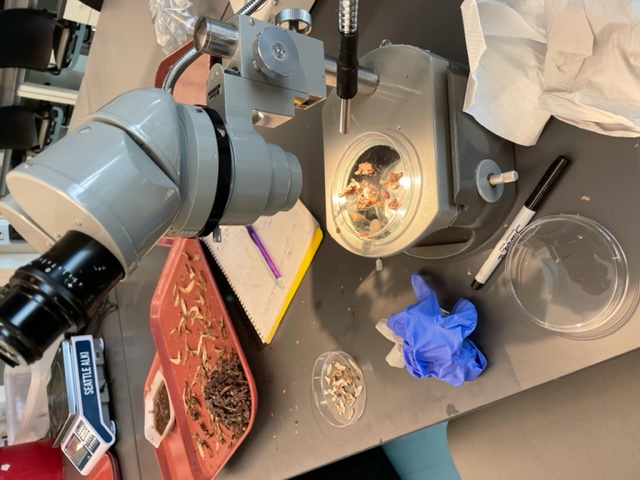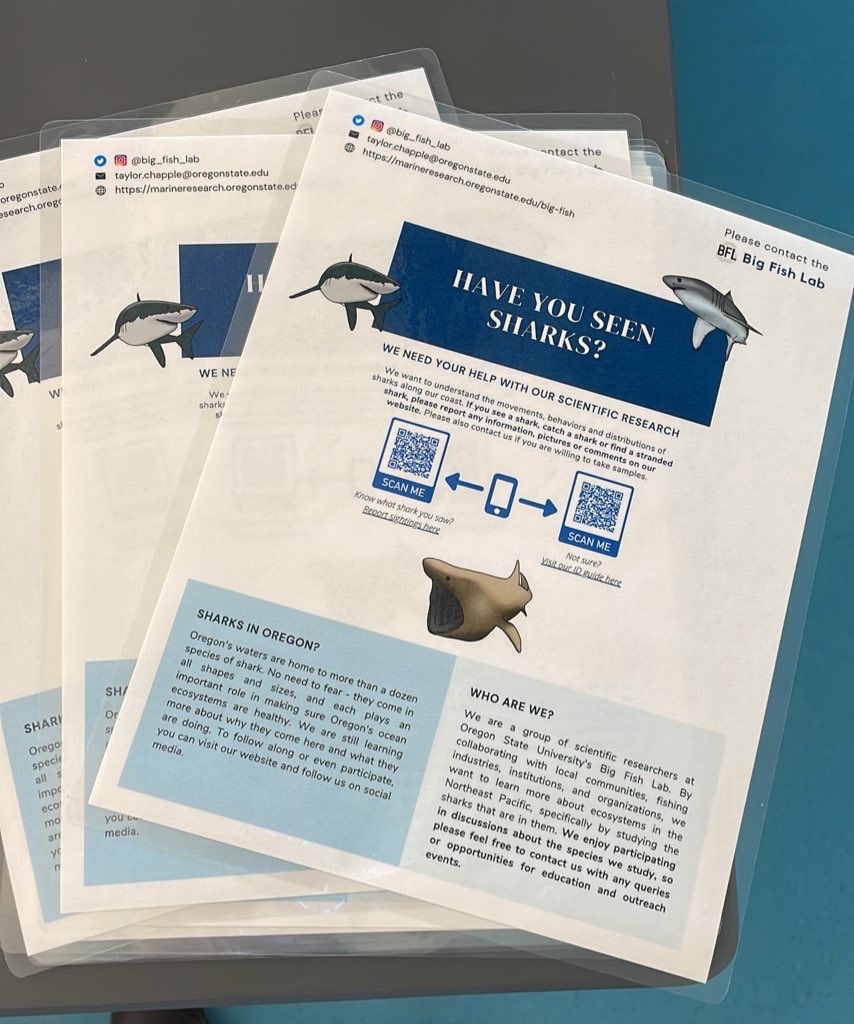Methods
Summary

This project will use a variety of methods to assess the impact of salmon sharks on salmon populations. These range from diving into stomach contents and analyzing tissue samples (which contain long-term diet information) via stable isotope analysis, to tagging sharks to look at their energetic requirements and movement patterns. To tie it all together, we will be creating models to visualize spatial overlap between salmon shark and salmon habitat. We are lucky to have the resources and knowledge available from the Big Fish Lab, NOAA, and many other collaborators.
Challenges
This is a massive undertaking, and though we believe we have the brainpower to do it, very few researchers have taken a close look at salmon sharks and their impact on ecosystems in the Pacific Northwest. As a result, we expect there to be a few challenges. Salmon sharks have only been studied and tagged locally, in Alaska or in California, for example. Our goal is to synthesize all existing data sources and contribute our own data. That requires successfully tagging sharks across Oregon, Washington, and Alaska. We are also seeking stomachs and tissue samples across this range, so we need to connect with collaborators in each of those areas to help us. In sum, the success of this project is inherently dependent on our ability to find sharks. To overcome this, effective science communication will be critical. We will rely on members of the fishing, research, and science education communities along the coastline of the Pacific Northwest. To this end, the principal investigators on this project have extensive experience in community engagement and communication.
Protocols
This project has not yet shared any protocols.
